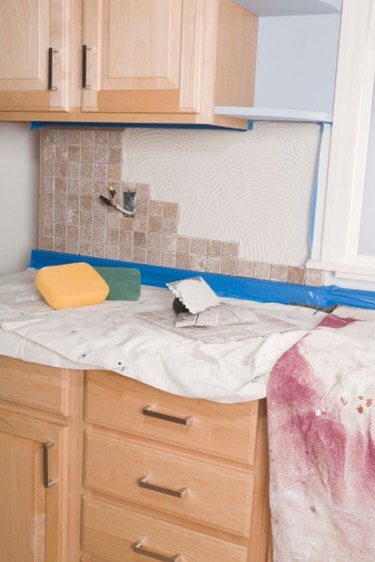Things You'll Need
Screwdriver
Old newspapers
Vibrating sander
Medium and fine sandpaper
Tack cloths
Finishing paintbrushes
Rags
Oil-based polyurethane

A wooden cabinet in a bathroom is subjected to heavy moisture in the air that can damage the wood surface over time. Most cabinets come with a protective finish of paint or varnish, which may not be enough protection for a bathroom environment. Coating the piece in polyurethane will add protection without obscuring the color of the surface. Although oil-based polyurethane has a slower drying time than water-based products, it provides better protection.
Step 1
Disassemble the cabinet, taking off all hinges and hardware with your screwdriver. Lay out the pieces on old newspapers.
Video of the Day
Step 2
Set up your sander with medium-grit sandpaper. Run the sander over the surface cabinet parts, dulling each section to take off any gloss or grime.
Step 3
Repeat the process with fine sandpaper to get the piece smooth and clean. Wipe up the dust with a tack cloth.
Step 4
Brush a light, smooth coat of oil-based polyurethane on the cabinet sections, using a refinishing paintbrush. Keep the polyurethane thin and smooth, then let it set for 24 hours.
Step 5
Sand the dried polyurethane lightly by hand with the fine sandpaper, just enough to make the surface dull and flat. Wipe up the dust with the tack cloth.
Step 6
Apply a second layer of polyurethane. Let it set for 24 hours, hand-sand it, then brush on a third layer. Let the third layer set for 48 hours. Put the cabinet back together.
Video of the Day